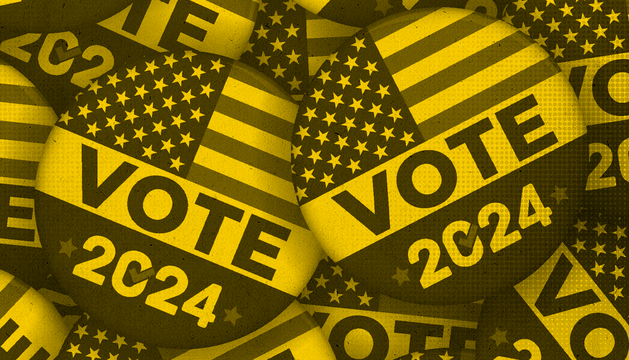Texas: Limits on Voter Eligibility Challenges
This resource details state and federal laws that guard voters against unfounded challenges to their eligibility.
Part of
With special thanks to Jenner & Block, LLP
Texas does not allow for challenges to a voter’s eligibility at polling locations during early voting and on Election Day. Texas does allow private individuals to challenge another person’s eligibility to vote outside of the voting period, and this resource details state and federal laws that govern this process and protect challenged voters. Texas’s strong voter protections include requirements that all challenges be made by written and sworn statement and be based upon personal knowledge.
Outside of the voting period, a registered voter from the same county may challenge another voter’s eligibility but only by written, sworn statement.
- Only a registered voter from the same county may challenge another voter’s registration,1and only by filing a written and sworn statement with the registrar. 2
- The written statement must identify the voter being challenged and identify the specific qualification for registration that the challenged voter has not met. 3
It is a misdemeanor to include any intentionally misleading assertions in this statement. 4
Challenges must be based on firsthand, personal knowledge.
All challenges must be based on “personal knowledge.”5Personal knowledge is defined as “knowledge gained through firsthand observation or experience, as distinguished from a belief based on what someone else has said.”6
The following are examples of what is not firsthand knowledge:
- Information from someone other than the voter, including family members, roommates, or anyone else purporting to have information about the voter.
- Information obtained from a newspaper or other media sources.
Information obtained from a database or data matching program. In addition, any removals of voters based on data matching programs would be systematic removals that are strictly prohibited by the National Voter Registration Act within 90 days of a federal election. 7
All challenges, except those based on residency, are subject to a noticed hearing before the registrar.
- For challenges based on residency, the registrar must mail the challenged voter an address confirmation notice, 8but only if the address on the challenge matches the address on the voter’s registration record. 9Registrars are prohibited from sending confirmation notices to voters challenged on residency grounds within 75 days of an election until after the election has occurred. 10
- A challenged voter who fails to respond to a confirmation notice within 30 days will be put on the suspense list. 11A voter on the suspense list can still vote if they submit a statement of residence when they appear to vote. 12
- For all challenges other than residence, the registrar must schedule a hearing no later than 20 days after the challenge was filed (unless a later date is agreed to by both parties). 13If an election is approaching, the hearing must be scheduled before the election. 14
- The registrar must send notice of the hearing and a copy of the challenge to the challenged voter no later than the 15th day before the hearing. 15
After hearing evidence, the registrar must promptly deliver a written decision on the challenge. 16The voter has the right to appeal the decision of the registrar. 17
Almost no challenge should result in immediate removal of the voter from the voter rolls.
The National Voter Registration Act limits when and how voters can be removed from the rolls. Under the act, states and counties are permitted to remove a voter in just five circumstances: if the voter affirms the change; if state law requires, for a criminal conviction or mental incapacity; for the death of the voter; if the voter confirms a change of residence in writing; and based on other evidence of a change of residence, but only after the state sends a notice and the voter both fails to respond and fails to vote in the next two federal general elections. 18 These restrictions apply regardless of whether registrars are conducting their own list maintenance or responding to challenges.
• • •
Voters in Texas have the right to vote free from intimidation under federal and state law. Baseless challenges to a voter’s eligibility can harass and intimidate the voter being challenged, as well as other voters waiting to vote at the polls. More information on the federal and state laws that protect Texas voters from intimidation can be found here.
Endnotes
-
1
Tex. Elec. Code Ann. § 16.091. Separately a registrar can challenge a voter registration applicant if the registrar has reason to believe they’re not eligible, but only within two days of processing the registration application. Tex. Elec. Code Ann. § 13.074. The voter has a right to notice and a hearing on such a challenge. Tex. Elec. Code Ann. § 13.075.
-
2
Tex. Elec. Code Ann. § 16.092.
-
3
Id.
-
4
Tex. Elec. Code Ann. §§ 276.013(a)(3)(A), (b).
-
5
Tex. Elec. Code Ann. § 16.092(2).
-
6
Black’s Law Dictionary (10th ed. 2014), cited in Texas Secretary of State, Election Law Opinion RP-1, October 10, 2018, 4, https://www.sos.texas.gov/elections/elo/rp-1.pdf.
-
7
52 U.S.C. § 20507(c)(2)(a); U.S. Department of Justice, Voter Registration List Maintenance: Guidance under Section 8 of the National Voter Registration Act, 52 U.S.C. § 20507, 4, September 2024, https://www.justice.gov/crt/media/1366561/dl
-
8
Tex. Elec. Code Ann. § 16.0921.
-
9
TX Secretary of State, Election Advisory No. 2023–26, December 21, 2023, https://www.sos.state.tx.us/elections/laws/advisory2023–26.shtml.
-
10
Tex. Elec. Code Ann. § 16.0921.
-
11
Tex. Elec. Code Ann. §§ 15.053, 16.0921(b).
-
12
Tex. Elec. Code Ann. § 15.112.
-
13
Tex. Elec. Code Ann. § 16.093.
-
14
TX Secretary of State, Election Advisory No. 2023–26, December 21, 2023, https://www.sos.state.tx.us/elections/laws/advisory2023–26.shtml.
-
15
Tex. Elec. Code Ann. § 16.094.
-
16
Tex. Elec. Code Ann. § 16.095(a).
-
17
Tex. Elec. Code Ann. § 17.002.
-
18
52 U.S.C. § 20507(a)(3), (d).
More from the Limits on Voter Eligibility Challenges series
-
Virginia: Limits on Voter Eligibility Challenges
This resource details state and federal laws that guard voters against unfounded challenges to their eligibility. -
Wisconsin: Limits on Voter Eligibility Challenges
This resource details state and federal laws that guard voters against unfounded challenges to their eligibility. -
Attacks on Voter Rolls and How to Protect Them
Election deniers are targeting best practices for maintaining accurate rolls and proposing dangerous “alternatives.”


